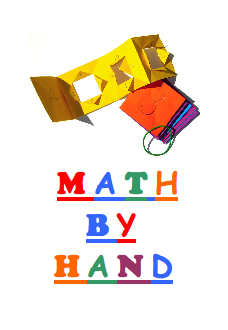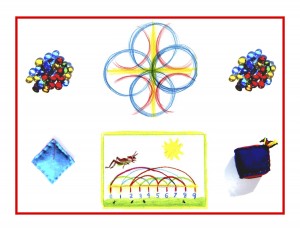Day 112
For one year, 365 days, this blog will address the Common Core Standards from the perspective of creating an alternate, ambient learning environment for math. Ambient is defined as “existing or present on all sides, an all-encompassing atmosphere.” And ambient music is defined as: “Quiet and relaxing with melodies that repeat many times.”
Why ambient? A math teaching style that’s whole and all encompassing, with themes that repeat many times through the years, is most likely to be effective and successful. Today’s standard will be listed in blue, followed by its ambient counterpart.
Measurement and Data 1.MD
Tell and write time.
3. Tell and write time in hours and half-hours using analog and digital clocks.
This is too abstract and advanced for first grade. For reasons cited in earlier posts, the optimal time to teach time is third grade. A more generalized sense of time can begin early on, but it’s a sense that must be allowed to grow gradually, not be taught abstractly with apps or worksheets. Here is an excellent article on the subject from Mum’s School Zone:
Fairy tales are a nurturing way to introduce the concept of time. The Twelve Months is a Russian fairy tale that casts the months as a circle of twelve men ranging in age from very young to very old. The ages of the men are related to the seasons, starting with Spring as the youngest and ending with Winter as the oldest.
This fairy tale is told in relation to the number 12 in the Math By Hand curriculum, retold by the children the next day, and illustrated with a form drawing: the circle divided into 12 with 3 segments representing each season. This is a link to Knit and Knag Designs, a website that offers knitting patterns seemingly related to folk and fairy tales. Here the story is called Marushka Fairy Tale in honor of the young girl who goes out into the world with nothing and is rewarded for her goodness and kindness.
As always, it’s movement, story, and art that win the math day! Knowledge ensues in an environment dedicated to imaginative, creative knowing, where student and teacher alike surrender to the ensuing of that knowledge as a worthy goal.












